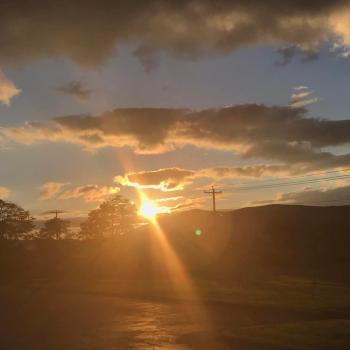In the meantime, there is the daily work of devotion and the ongoing work of education and visibility, as well as our very important (and timely, particularly in the last few months) work in making LGBTQI spiritual resources known and available as options to everyone, Pagan and non-Pagan alike. The forces of religious discrimination, hostility, hatred, and violence against LGBTQI people have been allowed to reign unchallenged and without critique for too long, and those same authorities in Christianity who mocked Antinous's divinity also mocked him for his supposed sexual and gender variant "excesses" to their celibate and strictly procreative ideals. I hope that Antinous's devotion can be a voice for inclusion for all people, and can be a reasonable and hospitable alternative to the idea that all religions (which is more accurately "all monotheistic religions," despite efforts on the part of some denominations and individuals) are not accepting of homoeroticism or gender variance. Here is one ancient cult that, no matter what else might be said about it, would never have existed had it not been for the love of two males for one another.
It is important to note that the relationship of Hadrian and Antinous was not entirely comparable to the modern notion of homosexuality; nonetheless, it was an emotional, erotic relationship, and one that was not based on the ideas of building a traditional family or producing offspring. To have a religious practice founded, ultimately, in love—a fierce love that ennobles as well as even deifies the lovers involved—is a powerful counter to the poisonous messages of far too many so-called religious voices in modern Christianity about the supposed evils and sinfulness of gay, lesbian, bisexual, transgendered, transsexual, queer, questioning, and intersexed individuals, for starters. Other religions have been as equally oppressive, and their influences need likewise to be challenged and countered in whatever ways possible.
When you note that the relationship Hadrian had with Antinous wasn't completely comparable with our modern notions of homosexuality, can you elaborate?
The ancient Greek practice of paiderasteia was not what most people want to identify with homosexuality now. If the estimates of historians are correct, Hadrian may have met Antinous in c. 123-124, when he would have been about 13 or 14 years old. Antinous was nearly 20 when he died, and had had a relationship with the Emperor at that stage for about six years. The Emperor himself was between the ages of 48 and 54 during their relationship. Ancient Greek and Roman homoerotic relationships were based upon social inequalities of various sorts: elder and younger, citizen and slave, educated and student/learner, etc. Not only is this sort of understanding not very palatable to the modern sensibility in most respects, in certain circumstances it's downright illegal—as well it should be. The idea that both Hadrian and Antinous were somehow of a particular class or sexual orientation because their biological sexes (by our scientific understanding) were the same is an alien concept to those cultures, and something that they themselves would not have recognized. Their identities of elite and commoner, Roman and provincial, and various other possible identifiers would have been far more important and to the fore in their self-understandings than their sexual attractions' object-choice.
Hadrian himself was not an exclusive homosexual, and indeed many people throughout history and in the pre-modern periods, and even still in many cultures worldwide, were not exclusive homosexuals, but instead could be described as (at least historically) bisexual, while they may most often simply identify as "normal" based on whatever their society determines is such. A Roman citizen and upper class male like Hadrian could have penetrative sex with anyone he chose, and as long as his own masculinity was not compromised by being anally penetrated, fellating another male, or performing cunnilingus on a female, he was not "gay" or "straight," he was just a man, vir. As a result, the Roman definition most comparable to "straight" is to be "a man," but "being a man" for a Roman looks, to us, like penetrative bisexuality.
When Hadrian was younger, he may have been a more passive partner in such relationships, as Antinous seems to have been; but there is no reason to think that had Antinous lived longer—no matter what his continuing relationship to Hadrian may have been and no matter what involvements he could have ended up having with younger men as he got older—that he would not also have been married and had children himself. The homoerotic aspects of the lives of Hadrian and Antinous should not be downplayed or ignored, and certainly shouldn't be suppressed; however, they should also be understood as not being the same as what many modern homosexuals have been, or what they hope for themselves in terms of exclusive, life-long attraction to their same sex. The tendency in some queer spiritual circles toward a kind of gay triumphalism is something that has only been possible with modern understandings and definitions of homosexuality, and it is fine as far as it goes; but likewise, it is a distortion and not very genuine to apply that construction of the definition of homosexuality back into the pre-modern eras, and to think that therefore Hadrian or Antinous were "gay," or that if they had their chance they would have preferred to be that way. In absence of any direct statements from them on this, we cannot know it for certain. Thus, the dualism of the homo/hetero sexual orientation divide is a further exclusionary divide that, I feel at least, shouldn't be used in spiritual contexts to elevate one manner of life or one type of attraction as superior to all others, or more favored of the gods.





